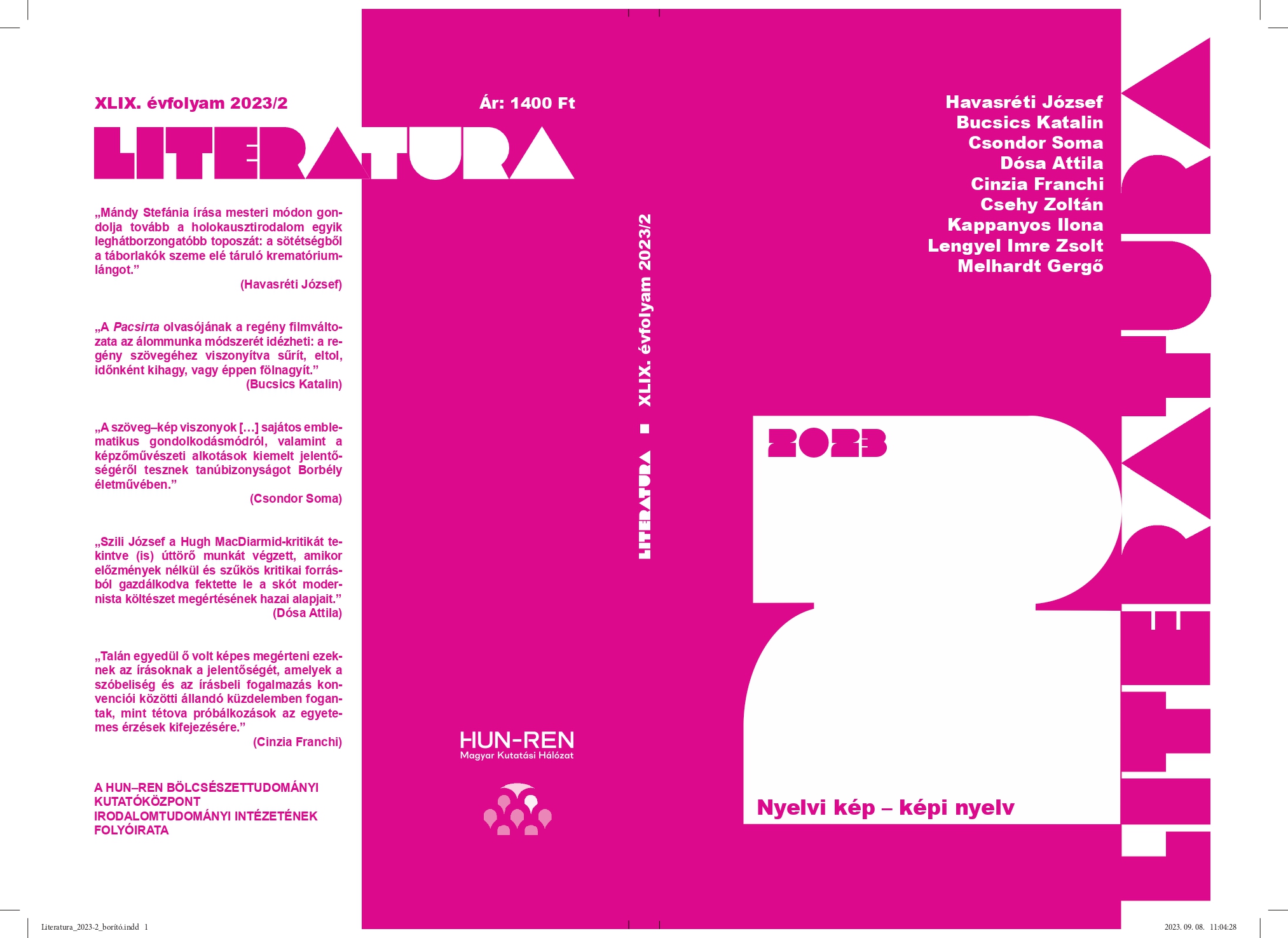Tanúságtétel, szürrealizmus, archaizálás
Mándy Stefánia és az Európai Iskola kapcsolatához
Absztrakt
As both a poet and an art historian, Stefánia Mándy (1918–2001) was closely associated with the work of the European School, an avant-garde artists’ group that was active in Budapest between 1945 and 1948. Her poetry was strongly influenced by the terrifying experiences of the concentration camps, as well as by intellectual currents linked to the Jewish tradition (the Kabbalah and philosophical theories of dialogue) and avant-garde movements, above all surrealist art and literature. As with the Surrealists, an interest in “archaic” cultures and the influence of the “archaic imagination” can also be observed in Mándy’s poems. At the centre of Stefánia Mándy’s work in art history was the oeuvre of Lajos Vajda, a posthumous member of the European School, who died in 1941; Mándy integrated the inspiration and motifs of Vajda’s painting into her own poetic language and the symbolic world of her poems. The motifs of the Jewish tradition, the memory of the Shoah, and the surrealist influences together created a remarkable synergy between the European School’s programme and aspirations and Mándy’s poetry.



